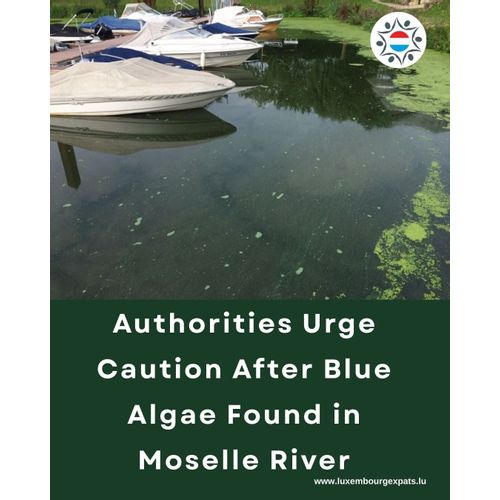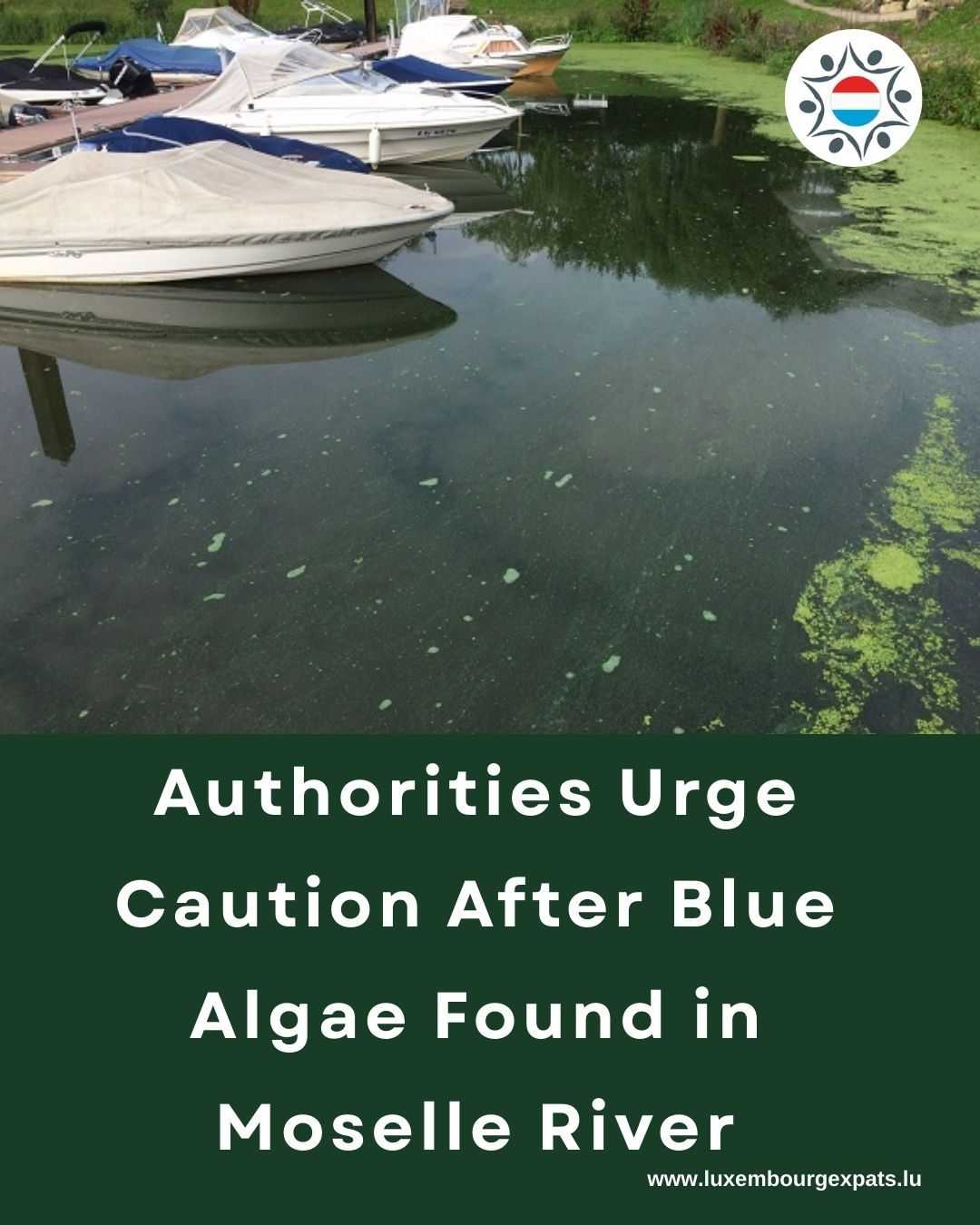Authorities Urge Caution After Blue Algae Found in Moselle River
LuxembourgPosted on 29 August 2025 by TeamBlue Algae Alert Issued for Moselle River
Authorities in Luxembourg and Germany have confirmed the presence of blue algae, or cyanobacteria, in several stretches of the Moselle River, prompting health and environmental warnings for residents and visitors. The discovery follows significant blooms reported near Koblenz in Germany and now extends to areas in Luxembourg, including Schwebsange, Machtum, and Wasserbillig, where slower water currents create favorable conditions for the bacteria to thrive.
Blue algae are not true algae but photosynthesizing bacteria that can multiply rapidly when temperatures are warm and water movement is limited. Under these conditions, they form thick mats or cloudy layers on the surface, often with a blue-green or pea soup-like appearance. While the organisms are naturally present in Luxembourg’s waterways, excessive blooms are cause for concern because some cyanobacteria release toxins that can be harmful to both humans and animals. Contact with contaminated water may result in rashes, skin irritation, nausea, stomach cramps, or headaches, while more severe exposure could potentially lead to neurological or liver damage. Pets and livestock are particularly at risk if they drink from or swim in affected waters.
Officials have stressed that toxin levels in most parts of the Moselle remain low for now, but as a precaution, the public is urged to avoid swimming in discolored water, keep pets away from riverbanks, and exercise care when fishing. The Ministry of Health in Luxembourg, together with German counterparts, is carrying out regular monitoring of the river to track algae concentrations and issue timely updates.
Experts link the rise in such blooms to broader environmental and climatic changes. Warmer summers, nutrient runoff from agriculture and urban areas, and shifts in water flow all contribute to conditions that allow cyanobacteria to flourish. Scientific studies suggest that these blooms are becoming more frequent and severe across Europe, underscoring the vulnerability of freshwater ecosystems.
For Luxembourg and Germany, the current situation along the Moselle serves as a reminder of how fragile river systems are in the face of climate change.
Authorities emphasize that public cooperation is essential—by following hygiene advice, respecting restrictions, and supporting long-term efforts to reduce nutrient pollution. Ongoing monitoring and research will continue to inform future strategies aimed at protecting both public health and the ecological balance of one of the region’s most important waterways.
Full Report : cyanowatch.lu
Join the community of your own - #1 home-grown LuxExpats app
SignUp Free: luxembourgexpats.lu
I am your contact
Team
Chat









